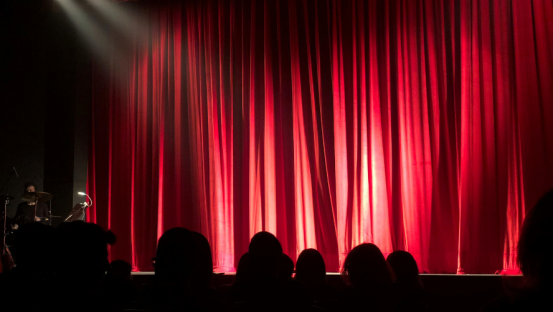The Barriers to Perfect Public Speaking

If you want to be the best public speaker you can be, you need to know the barriers that can get in the way and slow you down. It’s the same as with everything else – you need to know the pitfalls so that you can avoid them.
That’s why in today’s article, we’re going to take a look at ten of the main barriers that can get in the way of public speaking and how you can avoid them. So if you’re ready to dive in, let’s get started.
The Barriers to Perfect Public Speaking
1. Ignorance about the subject matter
This one is the big no-no. If you’re going to deliver a talk about something, you need to make sure that you know the subject matter like the back of your hand. Your job is to impart information and inspiration to people, and you can’t do that if you’re making it up as you go along. The good news is that most people who get into public speaking do so because they’re so good at what they do that people are crying out for their insights. But if you’re not already familiar with your subject matter, you’d better start studying.
2. Ignorance about public speaking best practices
This is another case of ignorance holding you back and stopping you from being the best public speaker you can be. Knowing your subject matter is all well and good, but you also need to be familiar with the best practices in the public speaking industry so that you can hold your audience’s attention and deliver a presentation that they’ll remember. Our blogs are a great place to get started, and be sure to familiarize yourself with the basics of body language and the rule of three.
3. Overconfidence
A little confidence is a good thing because it will help you to get over the finish line. If you’re not confident in yourself, it’s difficult to take to the stage, but if you’re too confident then you risk getting cocky and making basic mistakes. Instead, you’ll want to strike a balance between the two of them, which is easier said than done. It’s an approach that you will perfect over time, so the best way to get good at it is to practice.
4. Lack of networking skills
Networking is super important to public speakers for a variety of different reasons. To begin with, it’s your networking skills that are likely to get you your speaking gigs in the first place. You’re also going to put your networking skills to good use at the events themselves, because people in the audience are going to want to speak to you and ask you questions. Plus, if you don’t take advantage of the networking opportunities that these events provide you with, you’re not making the most of your opportunities to develop your speaking business.
5. Inability to think on your feet
One of the most important skills for public speakers to have is the ability to think on their feet and to improvise. It often seems as though, when you’re a public speaker, everything that can go wrong will go wrong. That’s why we need to be able to improvise and come up with things on the spot, because we can never tell when a piece of equipment will fail or someone will ask an awkward question.
6. Lack of knowledge about the audience
This is technically another form of ignorance, but it’s one that’s a little easier to forgive because to a certain extent, it’s out of your hands. Still, you should ask the event organizers to provide you with as much information as they can about the people that you’re going to talk to. That way, you’re much better placed to tailor your presentation to them, and that’s what’s going to ensure that you’re adding value.
7. Too much caution
An excess of caution means you’ll be too timid to take decisive action, and that’s vital if you want to make a living as a public speaker. Now, we’re not saying that you should be gung-ho and throw caution to the wind, but you do need to be prepared to share bold statements and to go against the grain of current thinking if necessary. You also need to provide direct answers to people’s questions, even if that answer is as simple as, “I don’t know.”
8. The need for speed
When people are nervous about taking the stage, they often speak hurriedly, as though they’re rushing towards the finish line. This often happens without them even noticing it – they’re just subconsciously speaking quickly because they want their talk to be over and done with as soon as possible. Speed can be useful from time to time, but you’ll want to use it sparingly because it’s generally a better idea to speak slowly so that people can more easily understand what you’re talking about.
9. A tendency to waffle
Words have power, so we need to be careful with the way that we use them. A lot of us start to ramble when we’re feeling uncomfortable because we’re trying to cover up the silence, and that can harm our performance at public speaking engagements. This is another thing that we can only overcome through practice. We need to focus on the way that we speak and try to cut back on unnecessary wordage.
10. Not enough preparation
This is one of the most common issues of all, and you’d be surprised by how often it happens. They say that if you fail to prepare, you prepare to fail. You need to go over your presentation as many times as you can until you’d be able to give your presentation without the slides and without any warning. There’s no such thing as too much practice.
Conclusion
Now that you know our thoughts on the main barriers that can stop you from being the best public speaker you can be, we want to hear from you. Have you fallen victim to any of these barriers? And if so, were you able to overcome them?
As always, be sure to let us know your thoughts in the comments so that we can keep the discussion going. You can also follow us on your favorite social networking sites for more, and we’ll see you soon for another article.





